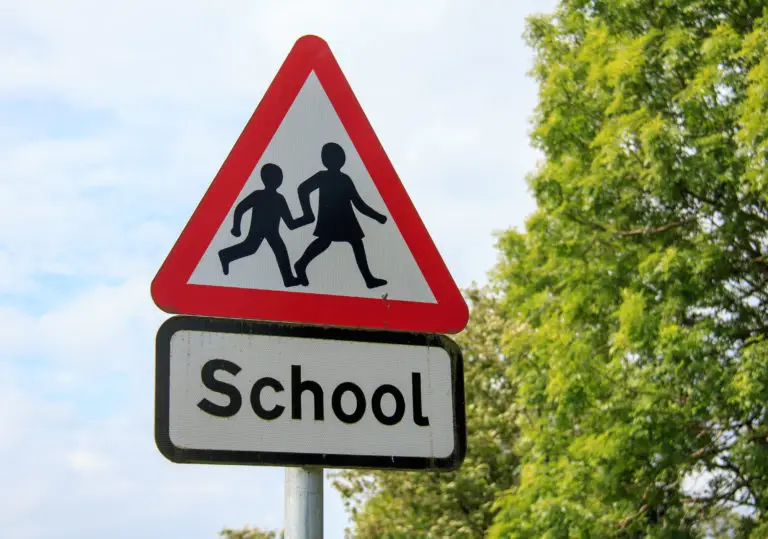With just 12 days left in the advent calendar, PLMR’s Education Practice is unwrapping some of the biggest challenges and newest initiatives to hit the education sector in 2022.
There is no doubt those working in education have faced significant hurdles over the last year, from the fallout of the pandemic to the rising cost of living, teacher shortages and an array of ministerial teams. However, this year has also demonstrated just how incredibly resilient and determined the sector is to provide the best possible start in life for young people. There has also been good progress made in a range of areas, including the profile-raising of sustainability and inclusivity.
In this article, we explore 12 of these key themes, reviewing activity from the past year and looking ahead to what is needed for the sector in 2023.
- Schools Bill
In March, the Government published its much-anticipated Schools White Paper, which centred around creating opportunity for all through strong schools and great teaching. However, the Schools Bill, which would have legislated on a number of areas in the White Paper, soon faced opposition in Parliament. This culminated in December when Education Secretary, Gillian Keegan, confirmed the Bill was scrapped.
However, Ms Keegan said the Government still viewed elements of the Bill as a priority, such as a register of children not in school and the removal of barriers for faith schools to join academy trusts, and that many other White Paper ambitions could be implemented without legislation. Ms Keegan cited the need to provide economic stability and tackle the cost of living crisis as the reason the Bill had been deprioritised. 2023 will hopefully reveal which elements (if any) do indeed survive.
- Energy costs and funding challenges
With events in Ukraine leading to rising energy prices, energy security and bills have dominated the headlines. On top of that are the effects of the cost of living crisis and the unfunded teacher and staff pay rises. We have, however, seen some political moves to support schools during this difficult period. These have included Truss’ six-month energy guarantee, the Government’s Energy Bill Relief Scheme, an additional £2 billion funding in each of the next two years, as well as this month’s announcement of a £500 million investment for schools to spend on energy efficiency upgrades.
While it is clear the Government has acknowledged the impact on schools and is putting measures in place to support them, the real question for 2023 is whether these measures will be enough to curb costs and keep them out of the cold, particularly after the Energy Bill Relief Scheme finishes in March. Plus, the new annual report on education spending from the Institute for Fiscal Studies finds schools will continue to face a ‘large squeeze’ on their budgets with no net growth in school spending per pupil over a 14-year period, despite the additional funding, and highlights the ongoing funding of challenges for the early years and further education sectors.
- Recruitment and Retention
Teacher and support staff vacancies are continuing to rise, with recruitment and retention issues plaguing all parts of the sector. Coupled with impending strike action, ongoing staff sickness and flexible working opportunities outside the sector, recruiting and keeping great teachers and staff is a challenge.
There have been moves to address this by the Department, with higher starting salaries for teachers, various bursaries, the aforementioned unfunded pay rises for teachers and staff and investment in professional development. However, the challenge is persisting. Recruitment and retention is likely to be a recurring theme throughout 2023, particularly for subject specialists and new trainees entering the teacher pipeline.
- The green agenda
The past year has seen the DfE affirm its commitment to the environment, as it strives to ensure the sector’s operations and settings are becoming more sustainable, whilst simultaneously equipping future generations with the skills and awareness needed to tackle environmental challenges. The DfE’s sustainability and climate change policy paper outlined its targets and strategic aims in relation to the sector, dividing it into five key action areas: climate education; green skills and careers; the education estate and digital infrastructure; operations and supply chains; and international action. While the policy suggestions are bold, could the Department’s recent scrapping of the Schools Bill signal a similar deprioritising of its green ambitions as attention continues to be focused on more immediately urgent global and sector challenges.
- Assessment and accountability
2022, like the two years prior, has seen large-scale disruption to students’ exams as a result of the pandemic. This year was the first time students returned to sitting exams in person since the pandemic, but it was still far from a normal experience. Students received advanced information, support materials, optional content and changes to coursework alongside generous grading to help mitigate lost learning. Students next year will see a return to pre-pandemic grading but will still benefit from support in GCSE mathematics, physics and combined science with formulae and equation sheets provided.
Whilst these support measures were hotly debated, it opened up a wider question of how we assess our young people, how inclusive these exams are and if they are still the best way to grade fairly. For now, the general consensus is that exams remain the fairest method, but with the rise of technology, alternative qualification routes such as T Levels and the demand for more inclusive assessment practices, the future of assessment is not yet settled.
- New Languages Hubs
In November, the DfE announced that thousands more students will benefit from high quality language teaching as part of a £14.9 million programme to boost the number of pupils taking French, German and Spanish at GCSE and A level. The programme is designed to deliver on the pledge made in the schools White Paper to create a network of language hubs. Whilst, the Schools Bill has been scrapped, the White Paper and its ambitions still stand, and much of it can be enacted regardless.
The wheels appear to still be in motion to continue this new three-year plan. This also tracks with what Ms Keegan said in a recent Education Select Committee, during which she highlighted as a DfE priority the importance of school standards, saying ‘Nick Gibb’s back’, and added that there is a focus on phonics (‘expect lots’), maths hubs, foreign languages and standards generally. There are hopes that this languages programmes will succeed, but many caution that it has to be matched with the recruitment of more modern foreign languages (MFL) teachers which are already in short supply – watch this space.
- Early Years Funding
In 2021, the tightly-squeezed early years sector in England received an uplift to its budget, bringing total annual spending from £3.6 billion in 2021–22 to about £3.75 billion a year between 2022–23 and 2024–25. Meanwhile, in October 2022, the then-Minister for Schools and Childhood, Kelly Tolhurst, highlighted the £180 million package of support available to the early years sector to help support children’s development.
However, the Institute for Fiscal Studies (IFS) published a report in November which found higher-than-expected inflation means the increase will not compensate for rising costs, and total funding for the free entitlement will be 8% lower in real terms in 2024–25 than it is this year. Experts across the sector continue to call for increased Government support, with Neil Leitch, CEO of the Early Years Alliance warning “it is almost impossible to imagine how the sector will be able to survive with such a significant real-terms funding drop.” The Alliance also published a new report which found that more than one in 10 nurseries and pre-schools would be forced to close permanently if there is no further support once the Energy Bill Relief Scheme ends in March 2023.
- Independent Review of Children’s Social Care
In May 2022, the Independent Review of Children’s Social Care published a report recommending wide-ranging reforms to children’s social care. The report stated “a radical reset” of the children’s social care system is now “unavoidable” and outlined recommendations for doing so, including increases to budgets. The report found that without fundamental changes the number of children in care would increase from its current level of 80,000 to 100,000 in 2032, while costs could increase from £10 billion to £15 billion per year.
The Government has not yet published a response to the review’s report, but the then-Children and Families Minister, Will Quince, said that they would work with the sector to develop a national children’s social care framework, which would be set out in more detail later “before the end of 2022”. In December, the Department confirmed to the Education Select Committee they now expect to publish early in the new year.
- SEND and alternative provision
In March, the Government launched its SEND and alternative provision (AP) green paper. It set out its vision for a single, national SEND and AP system centred around new standards in the quality of support given to children across education, health and care. Following the publication of the paper, the Department for Education (DfE) held a consultation on the plans, and the Government has confirmed that its response to the review will be published early next year. The sector hopes 2023 will be the start of a coherent, revamped system which will make a difference for the children and young people who need it most.
- Apprenticeships and PLMR’s report
Further Education (FE) has been in the spotlight throughout 2022. Firstly, through Boris Johnson’s Build Back Better campaign and Skills agenda and more recently in the DfE ministerial team’s updated portfolios. Robert Halfon MP has now been appointed as Minister for Skills, Apprenticeships and Higher Education and Gillian Keegan MP, current Secretary of State, stated at a recent Education Select Committee that she is ‘very passionate about apprenticeships.’
This renewed focus on apprenticeships is welcomed by the sector and employers, though a recent report from PLMR found a gap between how positively teachers viewed apprenticeships compared to how confident they felt about advising students to pursue one. The report found that 86 per cent of teachers believe too few students are taking up the opportunity of apprenticeships, but only 26 per cent feel confident advising students about how to find an apprenticeship. As recommended in the report, more is needed to empower teachers to help raise students’ awareness of the range of opportunities available. The renewed focus in the DfE will hopefully enable progress next year.
- Equality and Diversity
Equality, diversity, gender and inclusion have been topics of hot debate over the last year. From media interest in installing gender-neutral toilets to the importance of racial representation and the spotlight on Black History Month, discussion has been widespread. This has come to a head in higher education (HE) with key voices calling for decolonisation of the curriculum. The Quality Assurance Agency for Higher Education, which advises universities on what to teach and monitors the quality of courses, for the first time this March included critical race theory in its recommendations of topics to cover. While controversial, many universities have pledged their commitment to decolonising their curriculum.
- Wokeism and the Freedom of Speech Bill
‘Wokeism’ arguments continued to escalate in the HE space this year, with, among other topics, free speech taking centre stage. While some students prioritise the creation of ‘safe spaces’, critics viewed this as coming at the cost of ‘free speech’, with the outgoing Vice-Chancellor of Oxford University recently stating that she finds it ‘unfortunate’ that some students ‘claim the right not to be offended’.
The Government’s Higher Education Freedom of Speech Bill is due to be enacted in 2023 which is designed to impose requirements for universities and students’ unions to protect freedom of speech. In its most recent report stage in the House of Lords, non-disclosure agreements for all complaints relating to misconduct or alleged misconduct by any person will be banned and the contentious clause four, which had allowed individuals to bring civil claims against HE providers or student unions for breaching their duty on freedom of speech, has been removed. It is hoped that the Bill will mean those on the side of ‘free speech’ will have more protection, but this will likely do very little to quell the agitation on both sides of this highly emotive subject.







